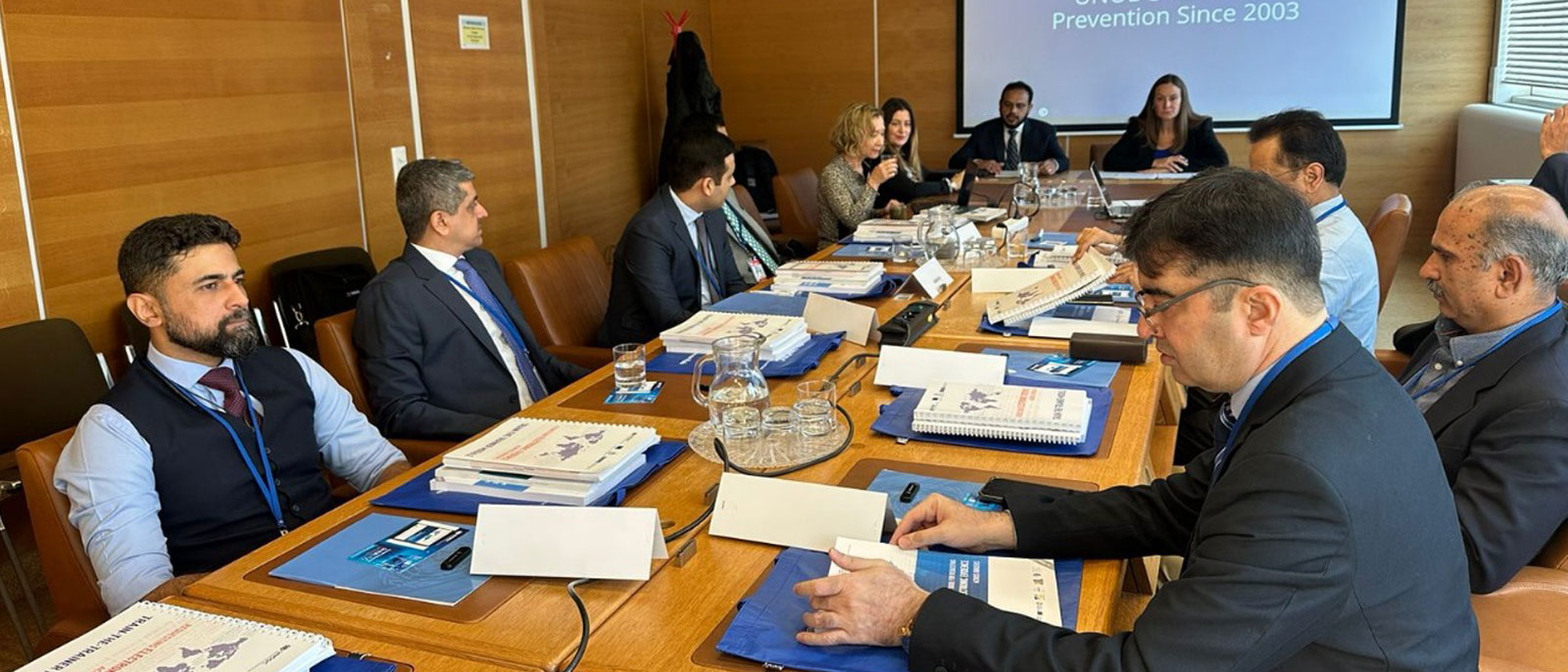17-20 September 2024, Vienna: In a significant effort to enhance the capacity of law enforcement officials in dealing with cross-border electronic evidence, the United Nations Office on Drugs and Crime (UNODC) organised a four-day "Train-the-Trainer Course for Pakistan on Requesting Electronic Evidence Across Borders." Held in Vienna, from September 17-20, 2024, this course aimed to equip key stakeholders from Pakistan with advanced skills to streamline the process of obtaining electronic evidence in counterterrorism and serious crime investigations.
The training, attended by ten senior law enforcement officers and legal professionals from all across Pakistan including from KP and Balochistan, was organised by UNODC’s Country Office Pakistan and Terrorism Prevention Branch (TPB) with financial support from the Embassy of Denmark. The sessions provided participants with the latest knowledge and hands-on skills in requesting, preserving, and obtaining electronic evidence from foreign jurisdictions and service providers.
The workshop kicked off with opening remarks from Ms. Kate Fitzpatrick, Chief of UNODC's Implementation Support Section, and Mr. Muhammad Ali Rajput, Programme Officer from UNODC's Country Office in Pakistan. Participants then delved into the Global Initiative on Handling Electronic Evidence Across Borders, followed by expert-led discussions on adult learning techniques and practical training methodologies tailored to equip trainers with the ability to conduct future sessions independently.

